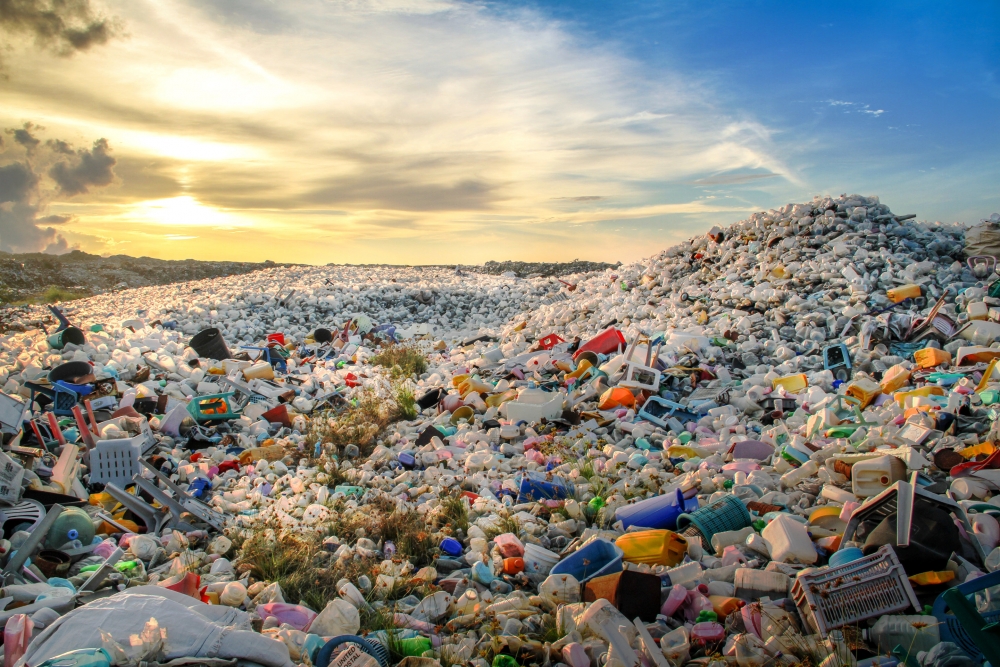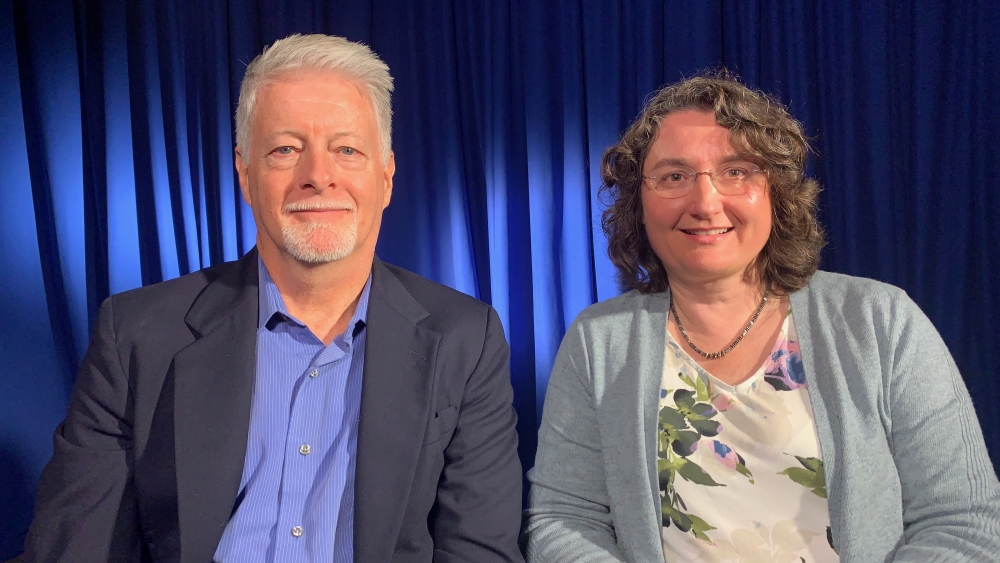
The Secret Lives of Plastic

An ocean gyre is a bit like a whirlpool, rotating with the wind and tides both at the surface and below. They’re massive current systems, essentially, and there are five major ocean gyres worldwide. And now they include plastic — lots of it.
Gyre is a word increasingly ascribed to growing concentrations of plastic debris amassing in and moving through our oceans. Photos of such accumulations are shocking in and of themselves — and that’s just the stuff you can see. Microplastics and microfibers, not visible to the naked eye, can be just as damaging to ocean ecosystems and species.
Multidisciplinary experts from academia, industry, government and nonprofit agencies will convene to discuss these and other imperatives related to plastics in a special conference at UC Santa Barbara. “The Secret Lives of Plastic: Materials, Recycling, Oceans and Communication” will be held Tuesday, April 30, from 2 to 9 p.m., in the campus’s Corwin Pavilion. The event is free and open to the public.
“It’s all about creating awareness, and my guess is that every one of these presentations will cover new content for many of the people in the audience,” said Ron Rice, the Arthur N. Rupe Professor in the Social Effects of Mass Communication at UC Santa Barbara in the Department of Communication. He is co-organizer of the conference, along with chemical engineer Susannah Scott, the Mellichamp Chair in Sustainable Catalytic Processing.
“We all know a lot of plastic is going into the ocean, but how many people know that only a small percentage of the plastic in the ocean can actually be seen?” Rice said. “And these plastics don’t easily decompose. They’re broken down then etched by microbes and those etches become sites for toxic chemicals in the water to attach to, then they float, get ingested and move through the food chain and into the air. So toxins also are being distributed throughout the world in ways we never thought of before.“
Added Scott, “The very long lifetimes of many plastics in the natural environment, coupled with inefficient recycling, mean that a lot of plastic is going to be with us long after its usefulness has passed. We’ve got to figure out what to do about the end-of-life phase or we are going to end up burying ourselves in plastic. The solution is only partly about banning single-use plastics, or switching to biodegradable alternatives. It also has to be about changing our awareness of where we need to use plastics, how we interact with them, and what we can do instead of discarding them.”
“There also are great things about plastics and they have absolutely, positively changed our world,” noted Rice, “but the question is, ‘What are the effects?’”
From plastics in oceans and other waterways to plastic bag and straw bans in cities around the world, and China’s recent decision to stop accepting most of the world’s plastic for recycling, scientists, scholars, industries and entire countries are grappling with both the positive and negative implications of plastic. The conference brings together experts from UC Santa Barbara and from the broader community in discussion and examination of such issues and the diverse questions they raise.
How are plastic and its alternatives designed, made, used, reused, trashed, burned, recycled and spread throughout the earth and oceans? What do biodegradable, compostable and sustainable actually mean? What are the university, local agencies and industries doing about plastic recycling? How do, and how should, we communicate about the uses and consequences of plastic? What are the industry, legal and policy initiatives and challenges of managing plastics?
Co-organizer Scott leads the manufacturing-focused Mellichamp Academic Initiative in Sustainability, an interdisciplinary effort on campus to integrate sustainability considerations into research in the chemical sciences and engineering, including assessment and minimization of environmental impact, assessment and optimization of economic feasibility, cultivation of public awareness and social acceptance of sustainability goals.
Among those goals, and Scott’s particular expertise, is the development of alternative chemical technologies. She and her researcher group are working to do exactly that, striving to design new materials which, in the case of plastics, replicate their function but are non-toxic and recyclable. One of her colleagues, Madhi Abu-Omar, the Mellichamp Professor in Green Chemistry, will discuss this project in his presentation, “Plastics from Nature for a Prosperous Future.”
“We live in a consumer society, and most people will not readily give up a lot of the comfort and convenience that comes with being able to afford to buy things, even though the resources needed to make them are finite,” Scott said. “The question is how do we maintain a good standard of living, and share this standard with more of the world, over the long term. One component of my research now is deconstructing synthetic polymers to make new materials that would otherwise be manufactured from crude oil. If we can make materials that are valuable enough, we can divert plastics out of waste streams, limit the amount that enters the natural environment, and reduce the overall amount of fossil oil we use at the same time.”
Part of an ongoing series on sustainable science communication, the event is a collaboration of the Mellichamp Initiative and the Arthur N. Rupe Biannual Conference helmed by Rice. Presentations will feature faculty, staff and local experts on everything from the impacts of synthetic microfibers and policy implications of plastics recycling, to plastics management and recycling on campus, the recycling landscape in Santa Barbara County and the fate of all plastics worldwide.
A keynote address by Dylan de Thomas, vice president of The Recycling Partnership, will center on the processes and challenges of managing and recycling plastic waste. The short film, “Oceans: The Mystery of the Missing Plastic” will also be shown.
“Susannah and I are great fans of having multiple perspectives,” said Rice, whose own presentation will review some unique plastic recycling communication campaigns from around the world. “The university is a source of great knowledge, and one purpose of a public university is to get that knowledge out. So let’s get people together and share it.”
Scott concurred. “Sustainability demands a balance between the needs of people, the environment and the economy," she said. “We need to take all of them into account and proceed thoughtfully to find lasting solutions to the end-of-life problem for plastics.”



